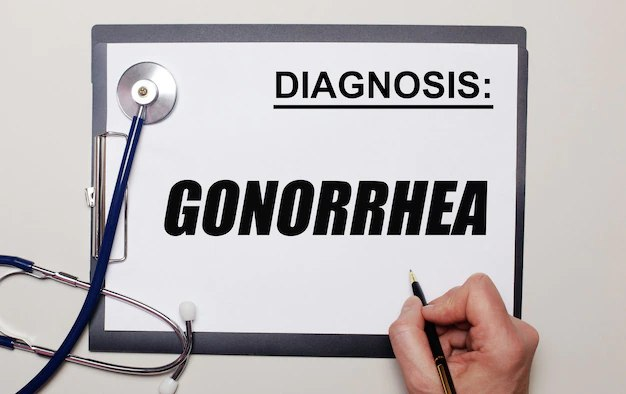Can You Get Gonorrhoea From Kissing?



Kissing is one of the most intimate gestures of affection between two people, but what happens when a simple kiss can transmit a nasty infection like gonorrhoea? Is there a chance you would get gonorrhoea from kissing? This blog post will discuss the risks of contracting gonorrhoea through kissing and how to protect yourself. We will also look at the symptoms of gonorrhoea and what to do if you think you may have it.
Gonorrhoea is a sexually transmitted infection (STI) caused by the bacterium Neisseria gonorrhoea. It is a common STI that can affect both men and women and is transmitted through sexual contact, including vaginal, anal, and oral sex.
The bacterium that causes gonorrhoea is present in the genital secretions and discharge of an infected person, and it can be transmitted through contact with these fluids. During oral sex, the bacteria can be transmitted from the genitals or anus to the mouth of the person performing oral sex.
Gonorrhoea is not typically transmitted through kissing, as it is mainly spread through unprotected sexual contact. This includes oral, vaginal sex, and anal sex. Risk is increased in men who have sex with men. It is also possible to contract gonorrhoea from a mother to her baby during childbirth. In rare cases, it can be spread by contacting infected fluids like semen and vaginal fluids. While it is possible to spread the infection through kissing if there is contact with infected fluids, it is not the most common way to contract gonorrhoea.
If you contract gonorrhoea, the symptoms can vary depending on the person. Common symptoms include:
A burning sensation when urinating
An increased need to urinate (frequency)
Yellowish or greenish discharge from the penis or vagina
Pain or swelling in the testicles
You should see a doctor immediately if you have any of these symptoms. In some cases, you may be asymptomatic. Your doctor can diagnose and treat the infection. It is important to remember that gonorrhoea is a serious infection that can be passed on to others if left untreated.
Even if you don't have any symptoms, it is possible to pass gonorrhoea on to other people.
Until recently, kissing was a neglected risk factor. It was believed that gonorrhoea couldn't be transmitted through kissing, but recent studies have suggested otherwise. Although it is not very common, it is possible to get gonorrhoea from kissing. This is because the bacteria that cause the infection can be transmitted through intimate contact, including kissing. Kissing can lead to the exchange of saliva, increasing the risk of transmitting the bacteria if one partner has it.
The infection can be passed through direct contact with the mouth, throat, eyes, or genitals, which can occur during kissing. Saliva can also contain bacteria, making it possible to contract gonorrhoea through kissing. Additionally, if a person has an open sore or cuts in the mouth, they may be more likely to contract the infection from kissing. You should always practice safe sex to reduce your risk of getting gonorrhoea and other sexually transmitted diseases.

The type of kiss does not matter, as even a closed-mouth kiss could spread the infection if one person has it and the other does not. This is because the bacteria that cause gonorrhoea can be passed through saliva, which makes it possible to get the infection through kissing.
But recent studies suggest that deep kissing with tongue, also known as 'French kissing', poses the highest risk of developing oropharyngeal gonorrhoea.
You can reduce your risk for oral transmission of gonorrhoea by practising safe sex and limiting your sexual or even kiss partner to one. This includes using protection, such as condoms or dental dams, during sexual activity. Additionally, it is essential to get regular testing for STDs and to communicate with your partner(s) about your sexual history.

It is important to note that individuals with oral gonorrhoea do not always show symptoms, making diagnosing difficult. Diagnosis of gonorrhoea is usually made through a physical examination and laboratory testing of a sample of the affected area. A sample of the affected area may be taken with a swab or urine sample. It is important to note that symptoms may not always be present, so it is best to seek medical attention if a person suspects they may have contracted gonorrhoea.
You can get gonorrhoea tests on our e-pharmacy, which are available here.
If not treated, gonorrhoea can lead to serious complications, such as pelvic inflammatory disease, infertility, or even life-threatening infections.
Fortunately, gonorrhoea is a bacterial infection that can be treated with antibiotics. If you have gonorrhoea, your doctor will likely prescribe a course of oral or injectable antibiotics. In some cases, gonorrhoea can be resistant to antibiotics, so your doctor may need to prescribe a different antibiotic.
Gonorrhoea is one of the sexually transmitted infections (STI) and is caused by bacteria called Neisseria gonorrhoeae. It is spread through contact with an infected person's penis, vagina, mouth, or anus. This can occur through vaginal, anal, or oral sex or sharing sex toys. In some cases, it may also be transmitted by kissing.
If not treated, a gonorrhoea infection can cause serious health problems. Treatment of gonorrhoea usually involves antibiotics, usually in the form of a single dose of medication or multiple doses. Your healthcare provider may also recommend other tests or treatments for any underlying conditions you may have. It is essential to follow all instructions from your healthcare provider to ensure effective treatment and prevent the spread of gonorrhoea.
Learn more about safe sex at Welzo. Read our articles What are female STI symptoms and How do I know if I have chlamydia?










Plus get the inside scoop on our latest content and updates in our monthly newsletter.